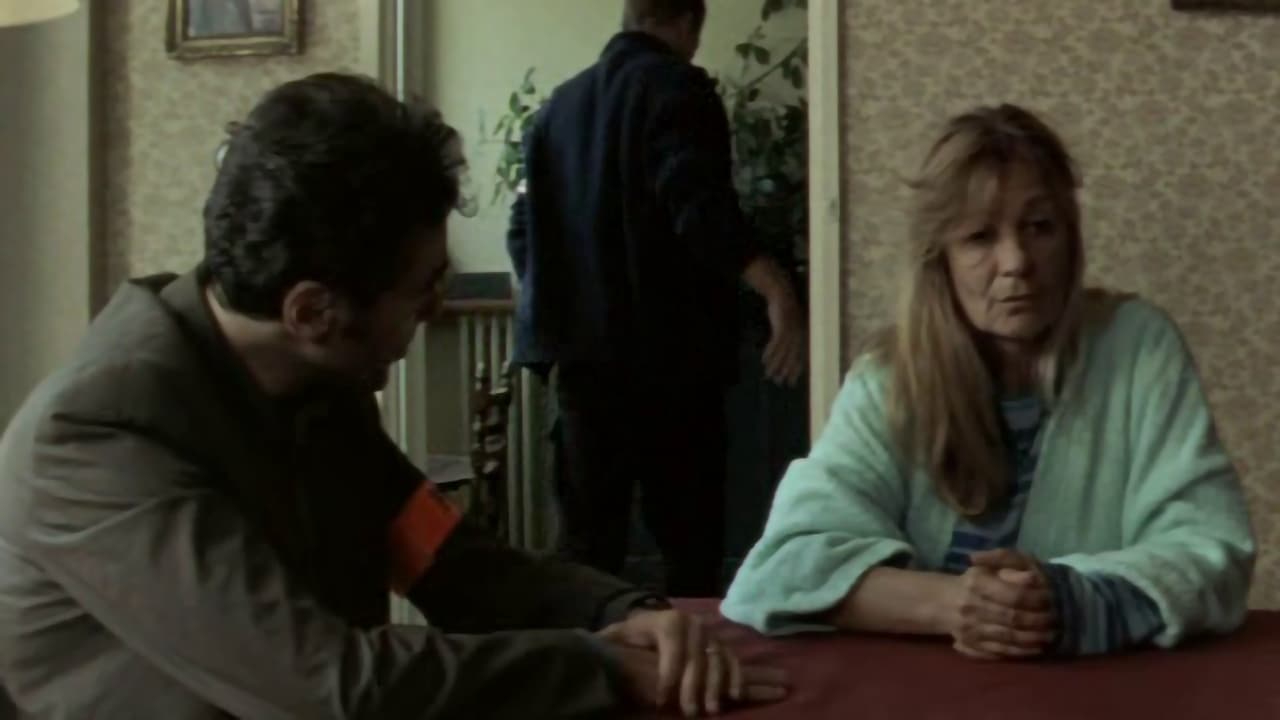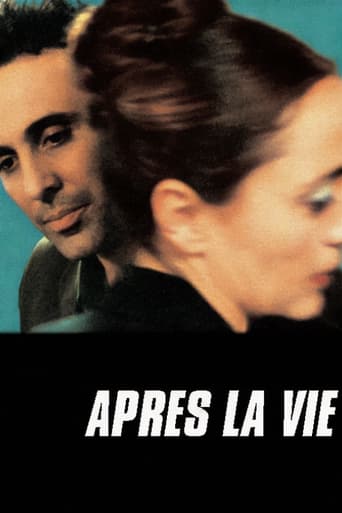Limerculer
A waste of 90 minutes of my life
Keeley Coleman
The thing I enjoyed most about the film is the fact that it doesn't shy away from being a super-sized-cliche;
Lidia Draper
Great example of an old-fashioned, pure-at-heart escapist event movie that doesn't pretend to be anything that it's not and has boat loads of fun being its own ludicrous self.
Philippa
All of these films share one commonality, that being a kind of emotional center that humanizes a cast of monsters.
Edgar Soberon Torchia
Lucas Belvaux ends his trilogy with « Après la vie», with an ending that seems a happy one, but full of deep melancholy. If «Cavale» was an intense action drama and «Un couple épatant», an entertaining chain of entanglements, in this final installment he opts for realism in the style of films like «Born to Win» and «Taxi Driver». It is because this third film tells us with minutiae the relationship between the police Pascal and his wife Agnes, who is addicted to morphine. And to complicate matters, he is the one who supplies her with the drug. When the plots of the first two movies (the escape of an activist and the suspicion of adultery, respectively) cross their lives, everything becomes completely altered. The arrival of the fugitive suddenly makes Pascal aggressive and violent, because the supply of drugs stops. Pascal (Gilbert Melki, a good Belgian actor with the ideal face for a police drama) cannot control his wife Agnes (Dominique Blanc, extraordinary actress) with her dose at hand. When Agnes asks him for help, as detective to her friend Cécile (Ornella Muti), Pascal becomes confused. Cécile suspects that her husband is cheating on her, and, frustrated by his own emotional life impeded by Agnes' addiction, Pascal believes that he has fallen in love with Cécile. Other subplots are resolved and secrets revealed, as the relationship between the fugitive and a mean pusher, or the sudden confession of who was the real informer responsible for the activists going to prison. However, it is the Pascal-Agnes relationship that dominates the film: it becomes a desperate search for morphine, and absence of love in a harsh society. A great trilogy that I recommend not to miss if it comes your way.
runamokprods
This intense drama of a cop trying to deal with his morphine addicted life puts more pieces in place of the world of stories Belvaux has created. It is fascinating to see scenes that played as comedy in part 2 "An Amazing Couple", repeated here, exactly as they were, but now they feel dead serious because of the change in context. The only problem for me – and most critics disagree, is that for me this was the weakest of the three films, the acting sometimes over the top, character logic sometimes vague or missing. I felt disappointed, because after part 2 made me like part 1 even better, I was hoping part 3 would raise the whole into more than the sum of it's parts, into 'great film event' territory. Sadly, that didn't happen for me – maybe because I was expecting too much. I'd certainly give this another shot, and it's absolutely a good film, with some very touching moments. It just felt a little more obvious in how it brought the trilogy's stories and themes (obsession, blindness in service of an idea or need) together than what I wished for.
Kevin O'Toole (culturedogs)
Lucas Belvaux's trilogy of films is meant to be taken as one multi-faceted unit, and is best viewed as such. The first (as I saw them), "On the Run," was a `thriller,' with Lucas Belvaux as a terrorist escaped from prison to settle scores and look up an old flame (Catherine Frot). In that film, there were the first glimpses of events in the romantic comedy, "An Amazing Couple." The trilogy ties up with this character study (or `melodrama'), "After the Life" ("Après la vie"), about the relationship between a pathetic and suffering drug-addicted teacher (Dominique Blanc) and her down on his luck and co-dependent cop husband (Gilbert Melki). The thriller was hobbled a bit by it's involvement with the other interwoven stories, but the romantic comedy and `melodrama' work fine as stand alones, and are even enriched by the angles explored and explained by the other films. All three should be seen together. Or, as a friend of mine has supposed, maybe I should just rent Kieslowski's `Three Colors' trilogy instead…?
faniouge
This film (which can be seen as a standalone film) is part of a trilogy. Three films, not consecutive, but parallel. Three stories, simultaneous, with same actors, same characters. Main actors in one film are secondary actors in the two others. There are common scenes between each movie, but always shown in a different way, a different point of vue. "Un couple epatant" is a comedy, with (Ornella Muti/Francois Morel),"Cavale" is a thriller, with (Lucas Belvaux/Catherine Frot), and "Apres la vie" is a drama, with (Gilbert Melki/Dominique Blanc).You can see only one or two of these movies, but it is really better to see all of them, as each one enlights some dark moments of the two others. The supposed order is the one i used, but you can see these films in any order.Individually speaking, the films are average (except "Apres la vie", the best one), but globally the experience is very good and very exciting.

